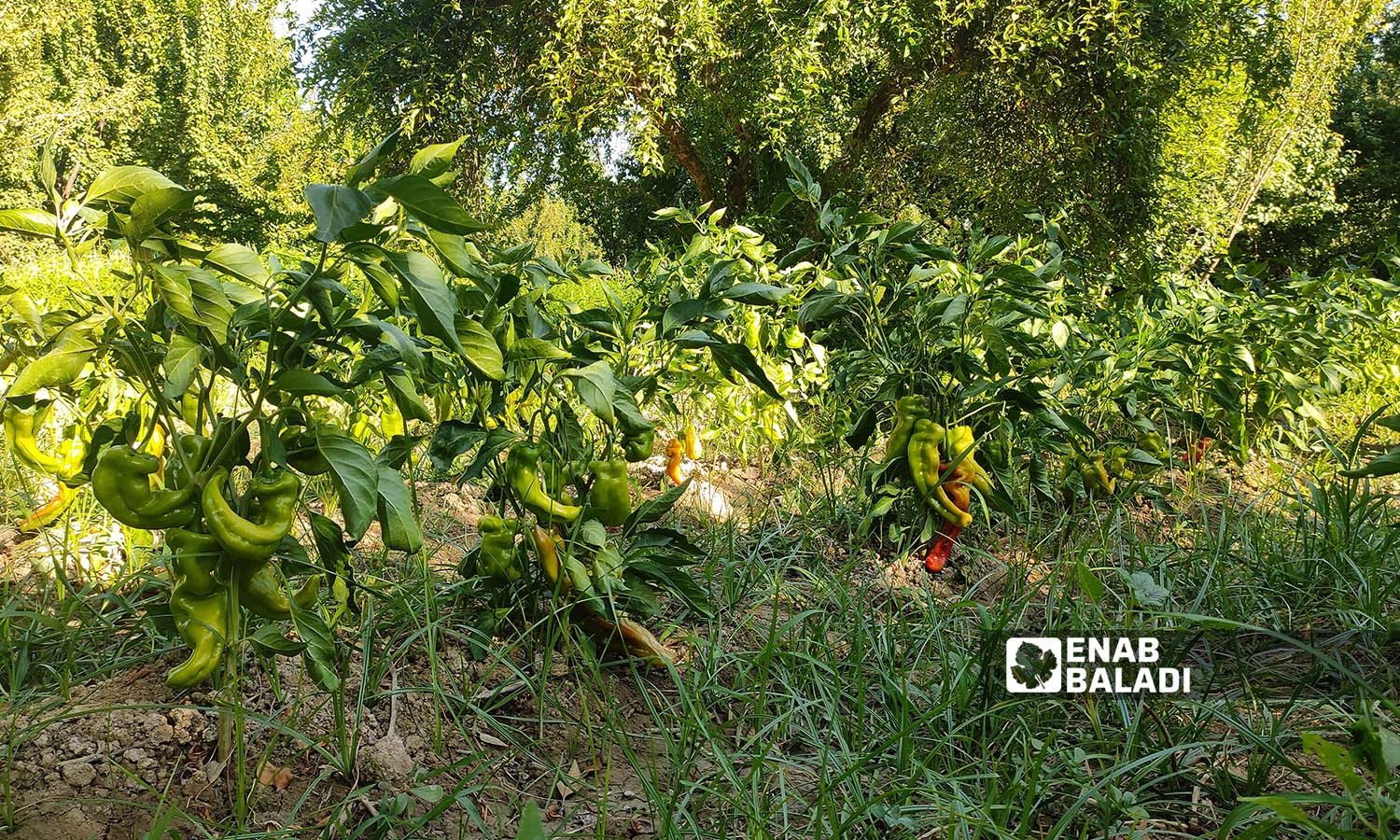



Enab Baladi – Idlib countryside
“Our problem in the region is the lack of water to irrigate the plains and orchards. We had an irrigation station called the Azmarin Plains Irrigation Station, irrigating more than 3000 hectares. When the project came to a standstill, this led to many problems for the farmers, the trees dried up, and farmers had to uproot them due to lack of irrigation,” farmer Hussein Hamasiya, 60, complains to Enab Baladi about the lack of irrigation water in the western countryside of Idlib.
Hamasiya’s farmland is about 1000 meters away from the Orontes River basin. Owing to the lack of irrigation services to maintain the production of his seasonal crop, he had to dig shallow wells to irrigate three dunums of his land.
Water is the region’s most scarce natural resource. The western countryside of Idlib’s water resources are limited to its share of the Orontes River, in addition to those extracted from groundwater. Rain and torrential rains do not constitute an additional resource that can be relied upon, with most areas of Syria’s north suffering from a lack of rainwater.
With the overpopulation of Idlib and its countryside, the need to meet the local market’s agricultural crop needs is increasing at a time when the population is food insecure.
However, despite those concerns, the shortage in irrigation water in the town of Azmarin has led most of the crops to dry up. Some farmers stopped caring for their land as agricultural production became a hefty burden.
Crops’ water consumption is affected by climatic conditions and their type and age stages, creating a discrepancy in the water consumption of crops throughout the season. However, irrigation systems play a key role in determining the water needs of crops, which are often twice the actual consumption.
The region’s irrigation systems are a major problem for farmers. The problem of irrigation is the shortage or absence of water most of the time, in addition to its insufficiency. This problem has many negative impacts on farmlands.
Azmarin farmers rely on extensions to pump the water of the Orontes River by means of high-cost diesel to long distances of more than 1 kilometer until irrigation water settles on farmlands intended for irrigation.
“Our territory is far from the Orontes River. Installing water pumping extensions and generators would financially burden us. We no longer have the energy to work on our land”. Farmer Mohamed Ezz al-Din, 35, is concerned about continuing work on his land after the costs of watering it have become higher than the profits he might earn from agriculture.
“During the years following the start of the revolution in 2011, the irrigation line suffered thefts, encroachments, and destruction”, causing the “disruption of the line that used to irrigate most of the farmlands from Darkush to Azmarin,” Ezz al-Din explained.
Enab Baladi had monitored many farmlands and orchards both near and far from the Orontes River basin, from which irrigation water had been completely cut off. Most farmers suffer from low financial income, while the disabled station has been the only source of irrigation in the area.
As part of its follow-up on the irrigation water supply crisis in Azmarin, Enab Baladi asked the Syrian Salvation Government (SSG)’s General Directorate of Water Resources about possible remedial solutions to avoid aggravating the problem. It also sought clarification on the disabled irrigation station but had not received any answers from the Directorate until the time of drafting this report.
if you think the article contain wrong information or you have additional details Send Correction